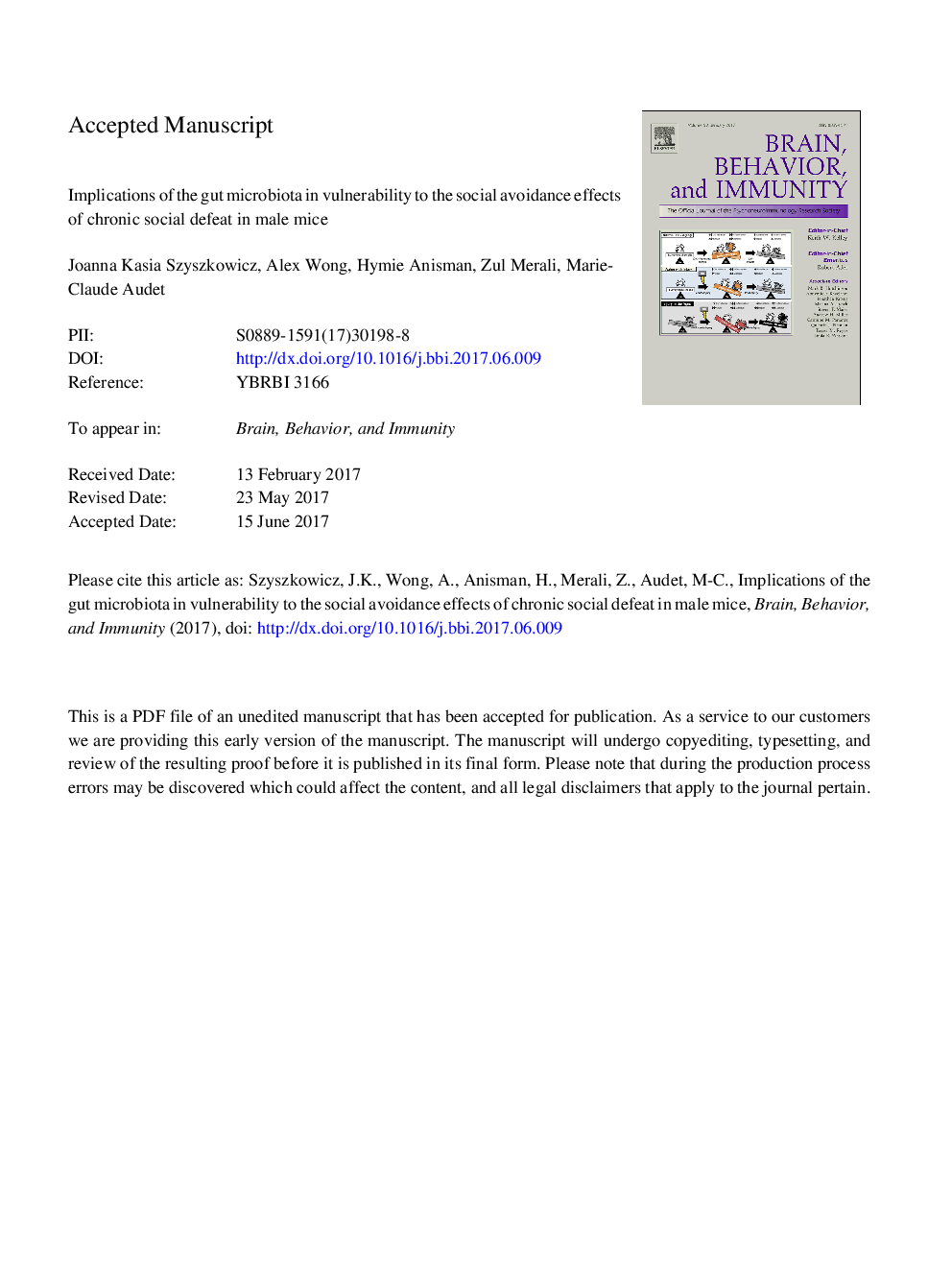ترجمه فارسی عنوان مقاله
پیامدهای میکروبیولوژیک روده در آسیب پذیری به اثرات اجتناب اجتماعی از شکستن مزمن اجتماعی در موش های نر
عنوان انگلیسی
Implications of the gut microbiota in vulnerability to the social avoidance effects of chronic social defeat in male mice
| کد مقاله | سال انتشار | تعداد صفحات مقاله انگلیسی |
|---|---|---|
| 124773 | 2017 | 44 صفحه PDF |
منبع

Publisher : Elsevier - Science Direct (الزویر - ساینس دایرکت)
Journal : Brain, Behavior, and Immunity, Volume 66, November 2017, Pages 45-55
ترجمه کلمات کلیدی
مدل حیوانی، رفتارهای افسردگی، میکروبیولوژیک روده، محور میکروبیولوژیک-روده-مغز، سیتوکین پروتئین التهابی، اجتناب از اجتماعی، شکست اجتماعی، حساسیت / انعطاف پذیری،
کلمات کلیدی انگلیسی
Animal model; Depressive-like behaviors; Gut microbiota; Microbiota-gut-brain axis; Pro-inflammatory cytokine; Social avoidance; Social defeat; Susceptibility/resilience;

